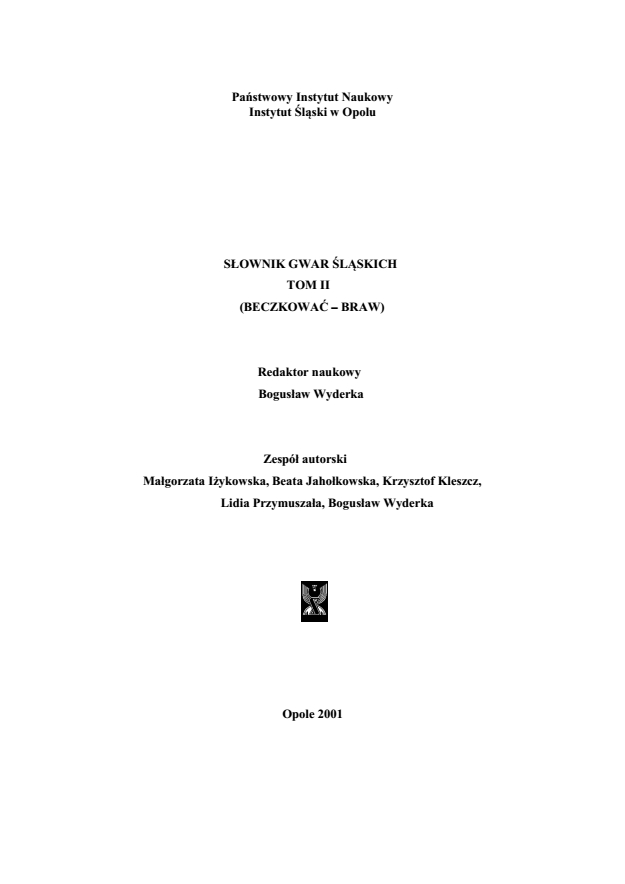
Słownik Gwar Śląskich, tom II (BECZKOWAĆ - BRAW)
"Glossary of Silesian Dialects" is the result of many years of scientific work of several generations of linguists from the Silesian Institute in Opole, Poland.
More...We kindly inform you that, as long as the subject affiliation of our 300.000+ articles is in progress, you might get unsufficient or no results on your third level or second level search. In this case, please broaden your search criteria.

"Glossary of Silesian Dialects" is the result of many years of scientific work of several generations of linguists from the Silesian Institute in Opole, Poland.
More...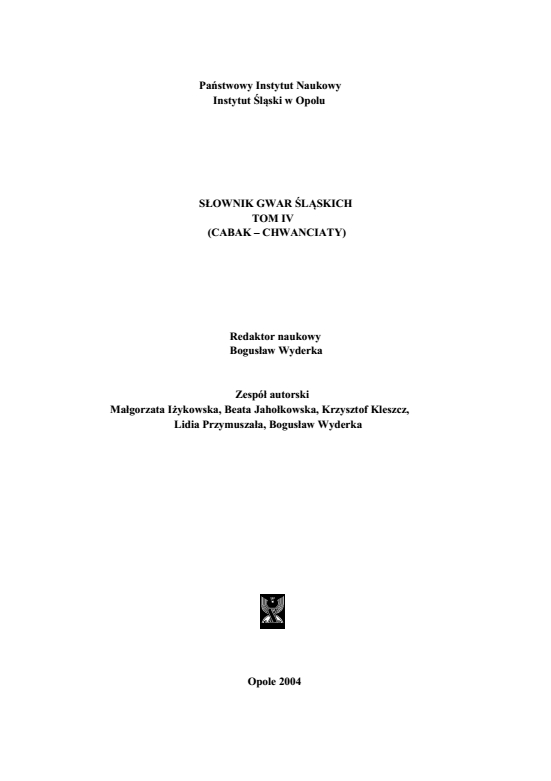
"Glossary of Silesian Dialects" is the result of many years of scientific work of several generations of linguists from the Silesian Institute in Opole, Poland.
More...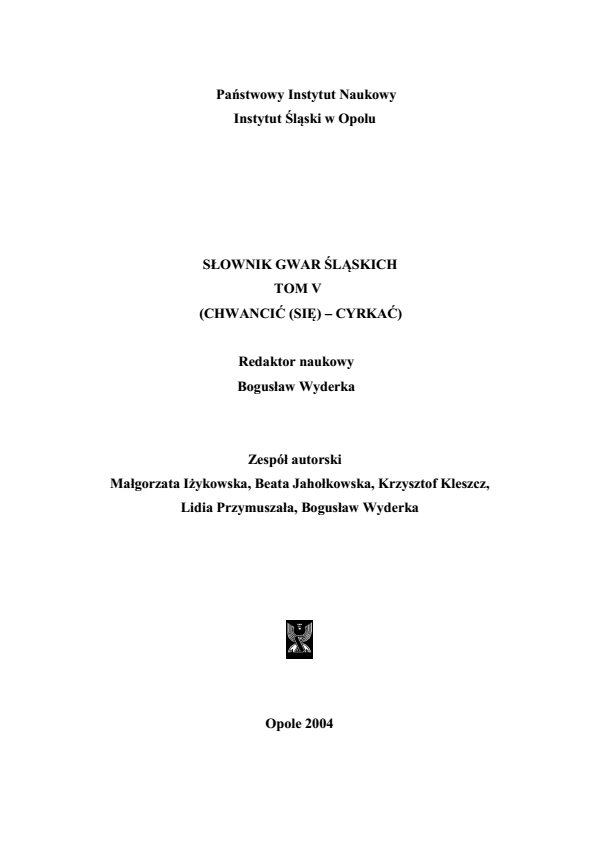
"Glossary of Silesian Dialects" is the result of many years of scientific work of several generations of linguists from the Silesian Institute in Opole, Poland.
More...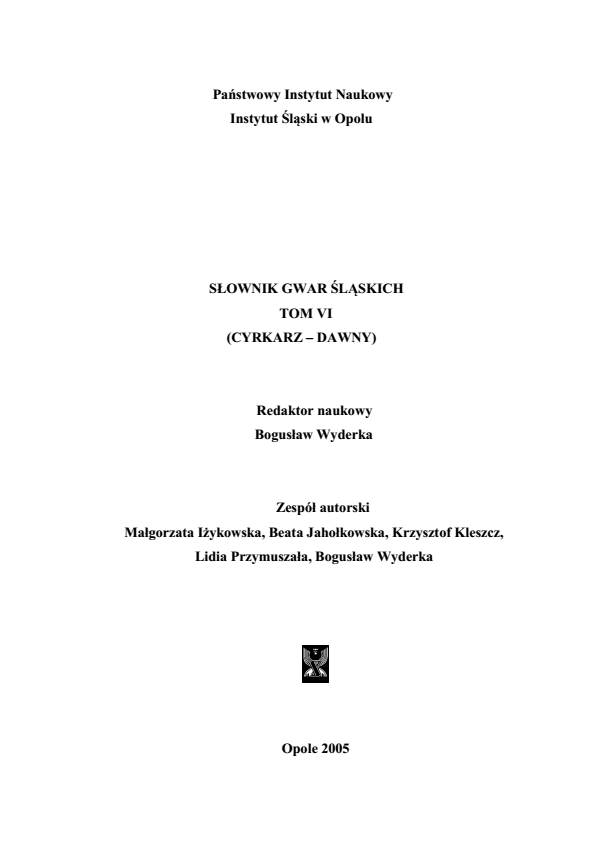
"Glossary of Silesian Dialects" is the result of many years of scientific work of several generations of linguists from the Silesian Institute in Opole, Poland.
More...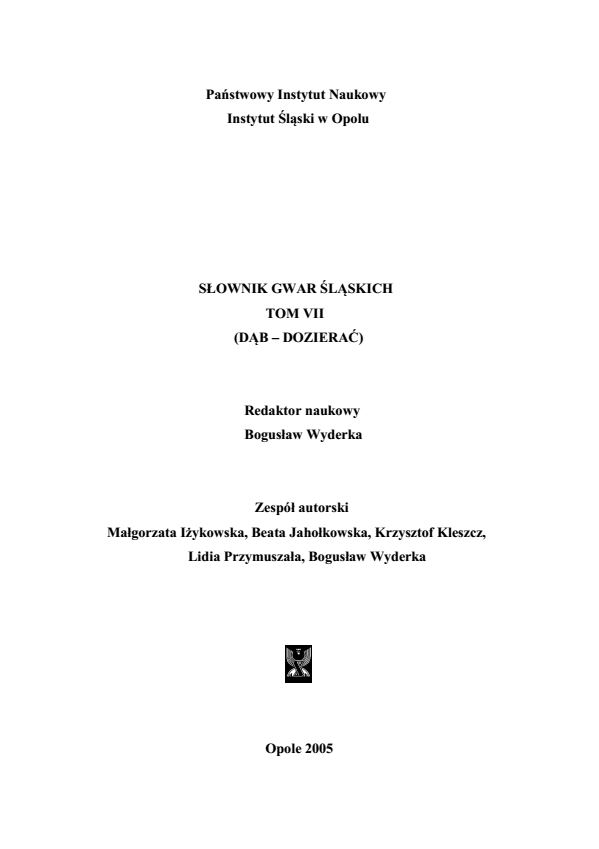
"Glossary of Silesian Dialects" is the result of many years of scientific work of several generations of linguists from the Silesian Institute in Opole, Poland.
More...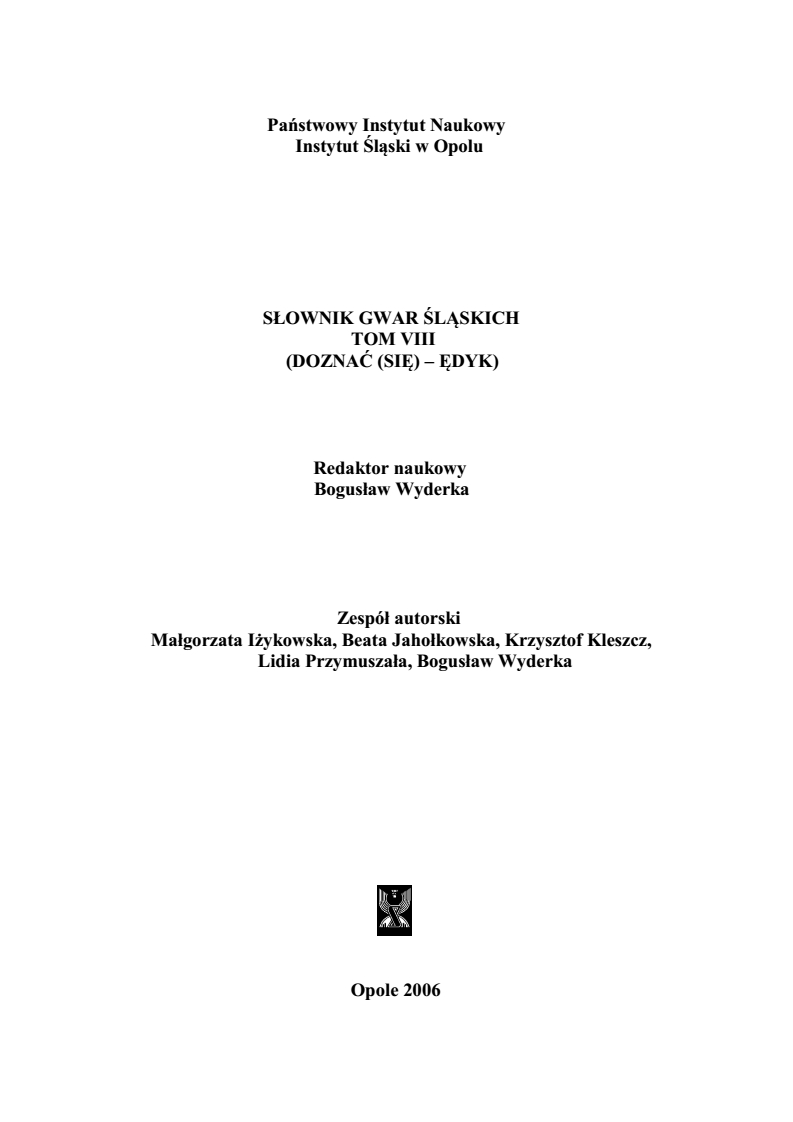
"Glossary of Silesian Dialects" is the result of many years of scientific work of several generations of linguists from the Silesian Institute in Opole, Poland.
More...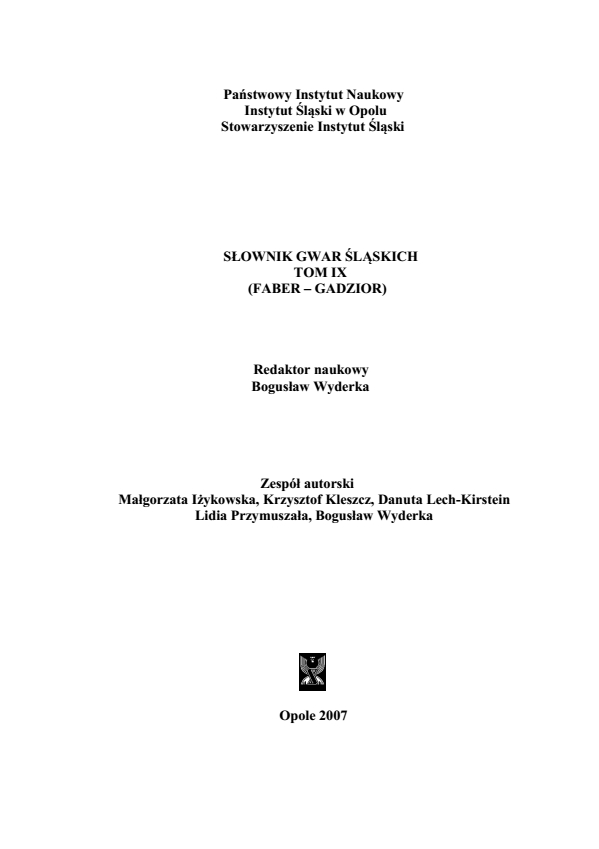
"Glossary of Silesian Dialects" is the result of many years of scientific work of several generations of linguists from the Silesian Institute in Opole, Poland.
More...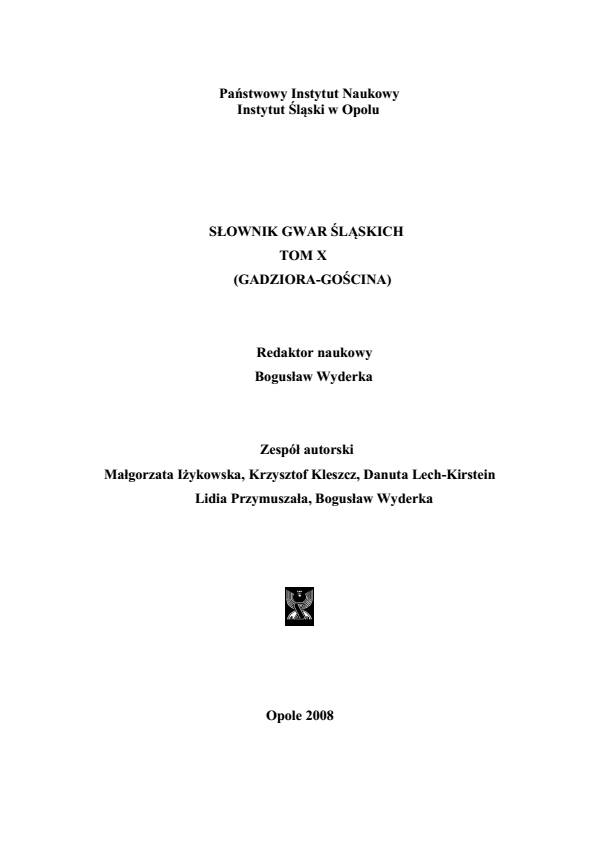
"Glossary of Silesian Dialects" is the result of many years of scientific work of several generations of linguists from the Silesian Institute in Opole, Poland.
More...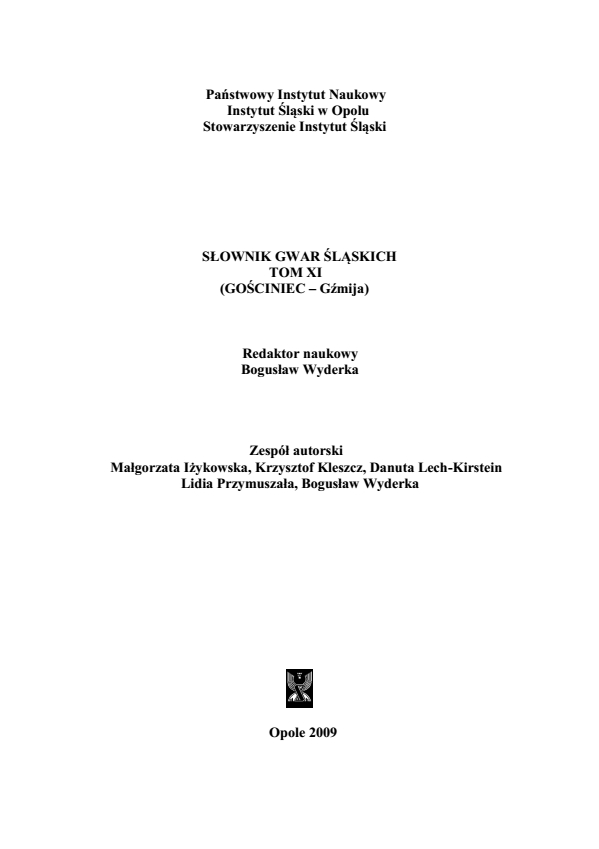
"Glossary of Silesian Dialects" is the result of many years of scientific work of several generations of linguists from the Silesian Institute in Opole, Poland.
More...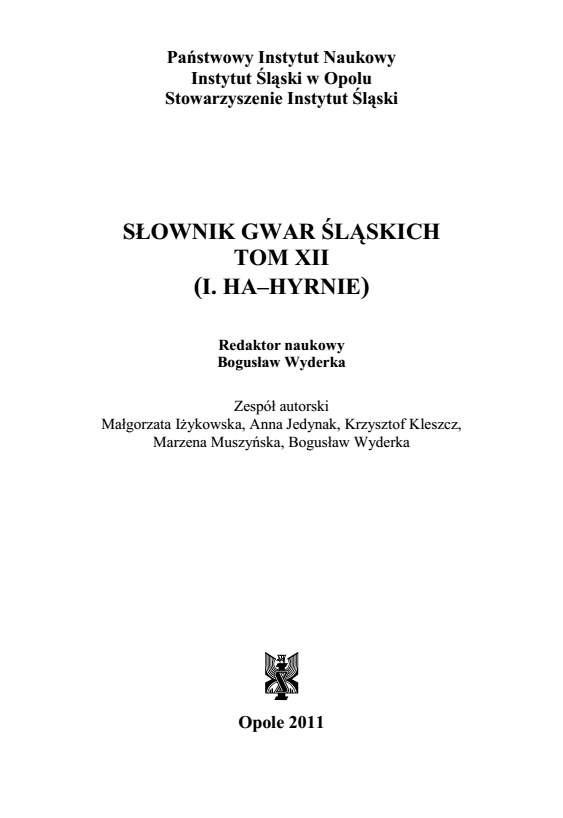
"Glossary of Silesian Dialects" is the result of many years of scientific work of several generations of linguists from the Silesian Institute in Opole, Poland.
More...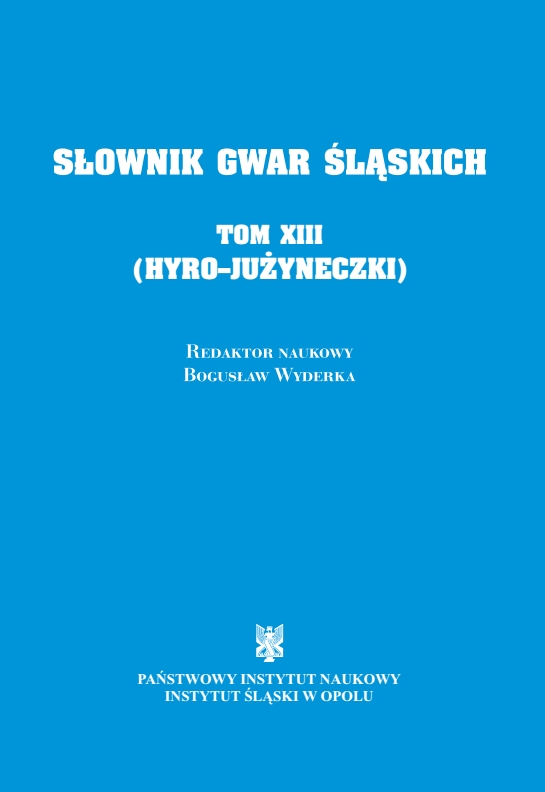
"Glossary of Silesian Dialects" is the result of many years of scientific work of several generations of linguists from the Silesian Institute in Opole, Poland.
More...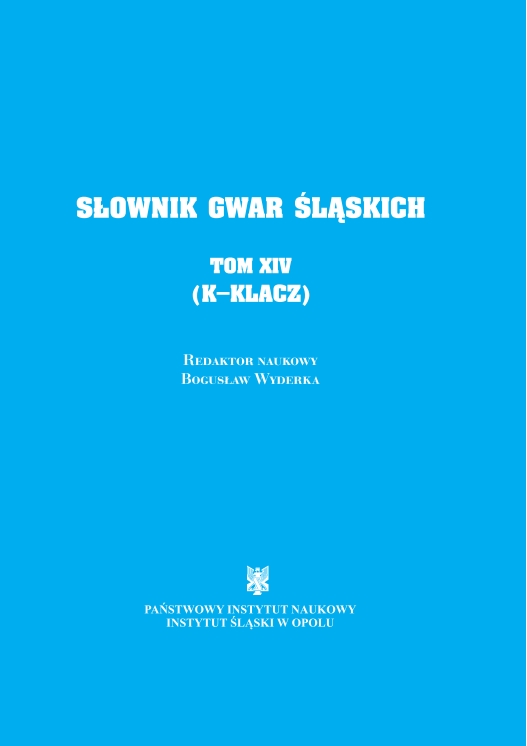
"Glossary of Silesian Dialects" is the result of many years of scientific work of several generations of linguists from the Silesian Institute in Opole, Poland.
More...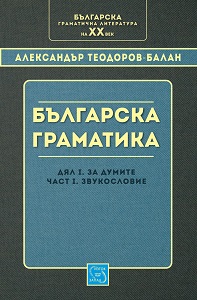
Second phototype edition of the series "Bulgarian Grammar Literature of the XX Century".In the research of academician Alexander Teodorov-Balan grammatical works occupy a special place not only with regard to the preceding grammars, but also because of their influence on the development of linguistic science in our country. From the position of modern linguistic theories, it is now possible to rethink or challenge the opinions, views and theoretical expressions posed more than half a century ago. Undoubtedly, however, Alexander Teodorov-Balan contribution remains a place in the history of Bulgarian science and education. - Prof. Ph.D. Vasilka Radeva- Prof. Ph.D. Vasilka Radeva
More...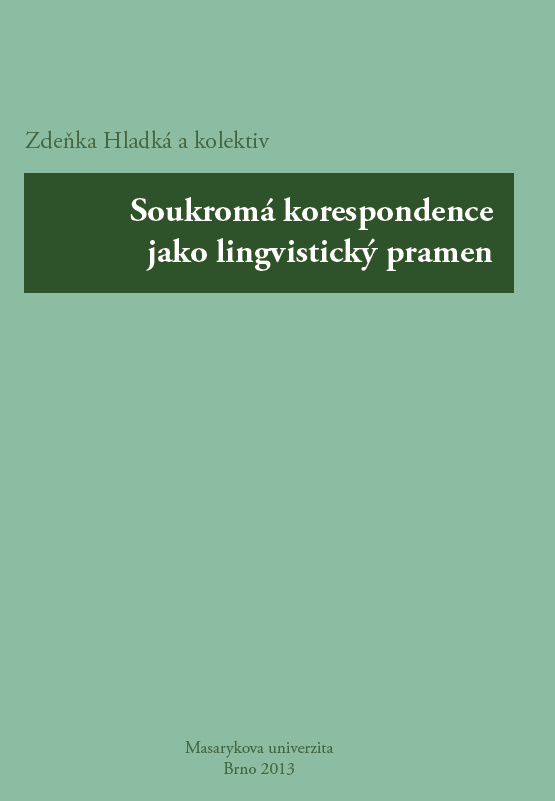
Private letters belong to most interesting materials, as far as their language is concerned. This book presents an insight into contemporary methodological approachesto a linguistic treatment of these materials.
More...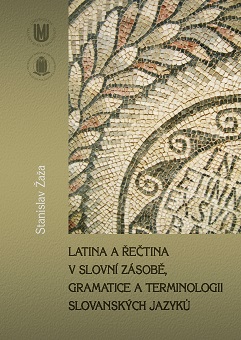
The book describes the results of influence of the ancient languages - Latin and Greek - upon the vocabulary, terminology, morphology, and syntax of various Slavic languages.
More...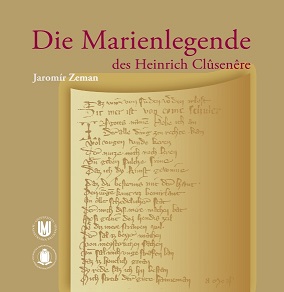
The publication presents the Middle High German Legend of Virgin Mary by Heinrich Clûsenêre. The publication consists of manuscript facsimiles, a diplomatic transcription, a translation into contemporary German, and a comprehensive linguistic commentary followed by the description of the text source and an analysis of selected aspects of the language, literary form, and content in historical and theological context.
More...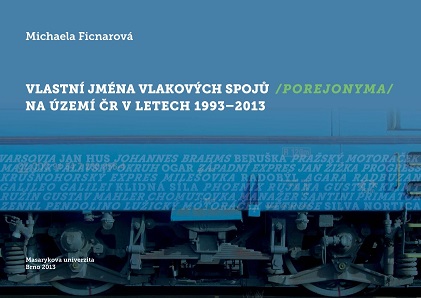
Unusual in its theme, this comprehensive publication should please not only experts in onomastics but also fans of rail transport. For the first time, they can discover detailed linguistic analysis of the names of 357 trains that have been crossing the Czech Republic since its foundation. The core of the book consists in an extensive dictionary of proper names of train lines where each train connection is accompanied with a table of extra-linguistic factors such as the train category, its number, departure and destination, route, and time of operation. Supplementary charts and maps are provided at the end.
More...
Publication deals with critical history of Spanish Gypsy lexicography. In first place, it pays attention to the theoretical lexicography and it applies its rules, mainly from the area of lexicographical criticism, to the corpus of Spanish Gypsy dictionaries. The main part of the book presents a critical study of repertoires of lexical units of this mixed dialect, starting from the 16th and 18th centuries manuscripts, 19th century amateur lexicographers’ dictionaries and ending up with 20th century ones. Final chapters look closely to Spanish Gypsy vocabularies and lists of lexical units present in publications about flamenco and Spanish Gypsies in general.
More...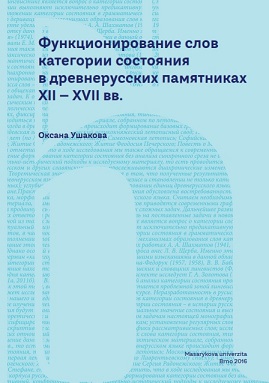
The monograph deals with the issue of the categories of state (predicative adverbs), which is a debatable point of contemporary Russian linguistics. In the center of interest are therefore indeclinable units that engage only in the predicate role of single-predicate sentences and express the state generally. The monograph completely describes how these words are represented and how they function in Old Russian texts from 12th to 17th century. The analysed units are viewed in lexical, derivative, morphological and syntactic terms. The complex research of such word is carried out in the confrontational diachronic and synchronic aspects of using data from Czech language.
More...
This monograph explores word order transformations in some Bulgarian and Serbian Church-Slavonic gospel transcriptions. The changes in word order in these texts are registered as variants to an Old Church-Slavonic text (Codex Marianus) and to the text of Old Greek New Testament. The publication discovers the principles on which the word order in the texts from the 12th and 13th century was organized and finds some differences from the word order in Old Church-Slavonic language. It also focuses on the question of occurrence of some new, progressive tendencies, and new, different word order models.
More...